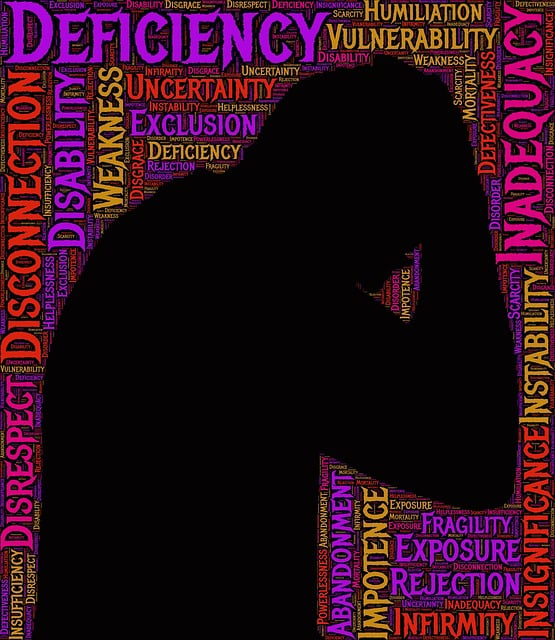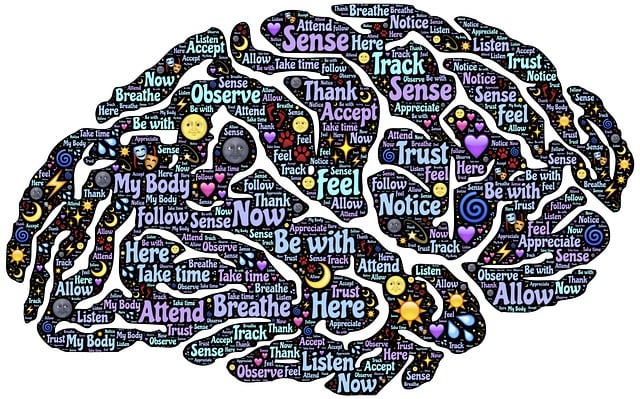Westminster Christian Counseling Therapy (WCCT) prioritizes cultural sensitivity in mental healthcare, addressing diverse needs through bias-aware practices. They overcome language barriers and respect cultural differences in emotion expression to tailor effective communication strategies. WCCT counselors receive training in crisis intervention and active listening, integrating resilience-building activities considerate of cultural factors for enhanced therapeutic outcomes. Through community initiatives like the Mental Wellness Podcast Series, they promote mental wellness across diverse backgrounds, fostering an inclusive and supportive environment.
In today’s diverse society, cultural sensitivity is paramount in mental healthcare. The article explores this crucial aspect at Westminster Christian Counseling Therapy, delving into understanding cultural diversity in mental health contexts. We examine challenges and misconceptions in cross-cultural therapy, highlighting strategies for sensitive practice. Additionally, we discuss the benefits and impact on client outcomes and community engagement, emphasizing Westminster Christian Counseling Therapy‘s commitment to inclusive care.
- Understanding Cultural Diversity in Mental Health Contexts
- Challenges and Misconceptions in Cross-Cultural Therapy
- Strategies for Culturally Sensitive Practice at Westminster Christian Counseling Therapy
- Benefits and Impact on Client Outcomes and Community Engagement
Understanding Cultural Diversity in Mental Health Contexts

In the diverse landscape of mental healthcare, recognizing and embracing cultural sensitivity is paramount. The Westminster Christian Counseling Therapy approach underscores the importance of understanding that individuals from different cultural backgrounds may have unique perspectives on mental health and well-being. This awareness is crucial when providing effective care, as it prevents assumptions and stereotyping, ensuring a safe and inclusive environment for clients from all walks of life.
Cultural diversity enriches therapy sessions through varied experiences and belief systems. For instance, crisis intervention guidance tailored to cultural contexts can significantly impact outcomes. Effective communication strategies that consider linguistic nuances and personal values foster deeper connections between therapists and clients. Moreover, self-awareness exercises that explore one’s biases and assumptions enable professionals to offer more nuanced support, ultimately enhancing the therapeutic process.
Challenges and Misconceptions in Cross-Cultural Therapy

Navigating cross-cultural therapy can present unique challenges, especially within diverse communities like those found in Westminster Christian Counseling Therapy settings. Misconceptions and cultural nuances often play a significant role in the therapeutic process, requiring therapists to adapt their practices for effective treatment. One key challenge is overcoming language barriers, which may hinder open communication between therapist and client. Accurate interpretation services or bilingual therapists are essential tools to bridge this gap, ensuring every individual receives personalized care.
Additionally, cultural differences in expressions of emotion and mental health beliefs can create misunderstandings. Some cultures may view emotional distress through a different lens, emphasizing spiritual or familial factors over individual experiences. Therapists must be mindful of these discrepancies and incorporate self-awareness exercises to challenge their own biases. Promoting social skills training within diverse communities can foster better understanding and connection during therapy sessions, ultimately enhancing the overall effectiveness of mental healthcare services.
Strategies for Culturally Sensitive Practice at Westminster Christian Counseling Therapy

At Westminster Christian Counseling Therapy, we prioritize cultural sensitivity as a cornerstone of our mental healthcare practice. We recognize that every client brings their unique cultural background, experiences, and beliefs to therapy. To foster an inclusive environment, our counselors are trained in crisis intervention guidance, employing techniques that are respectful and responsive to diverse needs. This involves actively listening to understand the client’s perspective and tailoring our communication strategies accordingly.
We integrate resilience-building activities into our approach, acknowledging that cultural factors can significantly influence a person’s ability to cope with challenges. By incorporating culturally sensitive practices, we aim to enhance the therapeutic experience, ensuring that every individual feels validated, respected, and supported throughout their journey towards mental well-being.
Benefits and Impact on Client Outcomes and Community Engagement

Cultural sensitivity in mental healthcare practices brings significant benefits and positively impacts client outcomes and community engagement. By incorporating an understanding of diverse cultural backgrounds and traditions, therapists at Westminster Christian Counseling Therapy can create safer, more inclusive spaces for clients from various ethnic, racial, and religious groups. This approach allows for a deeper understanding of clients’ unique experiences, fostering stronger therapeutic alliances. As a result, clients often feel more comfortable sharing sensitive information, leading to improved assessment and treatment planning.
Moreover, culturally sensitive practices encourage community engagement by promoting mental wellness through accessible channels like the Mental Wellness Podcast Series Production. By designing content that resonates with diverse audiences, Westminster Christian Counseling Therapy reaches beyond traditional therapy settings, offering valuable resources for coping skills development through engaging media formats. This strategy not only benefits individuals but also contributes to building a more supportive and resilient community overall.
Incorporating cultural sensitivity into mental healthcare practice, as demonstrated by strategies employed at Westminster Christian Counseling Therapy, is not just a moral imperative but also a key driver of positive client outcomes and enhanced community engagement. By addressing challenges and misconceptions in cross-cultural therapy, practices like Westminster’s ensure that diverse populations receive care tailored to their unique needs. This approach fosters trust, improves access to mental health services, and ultimately contributes to the overall well-being of our increasingly multicultural communities.














